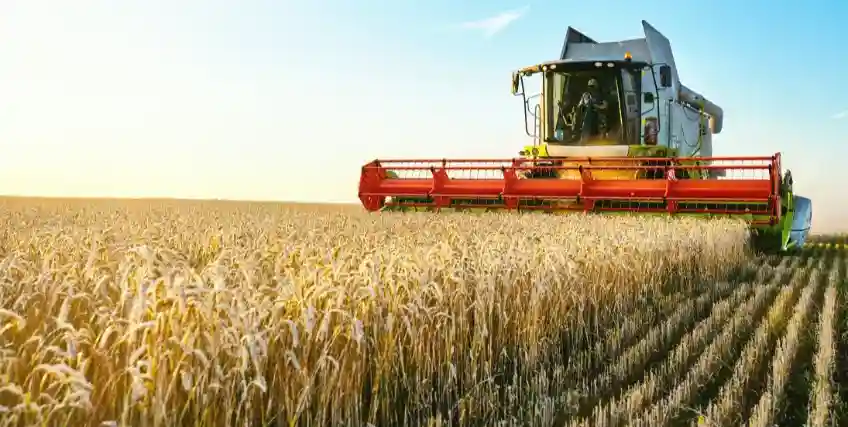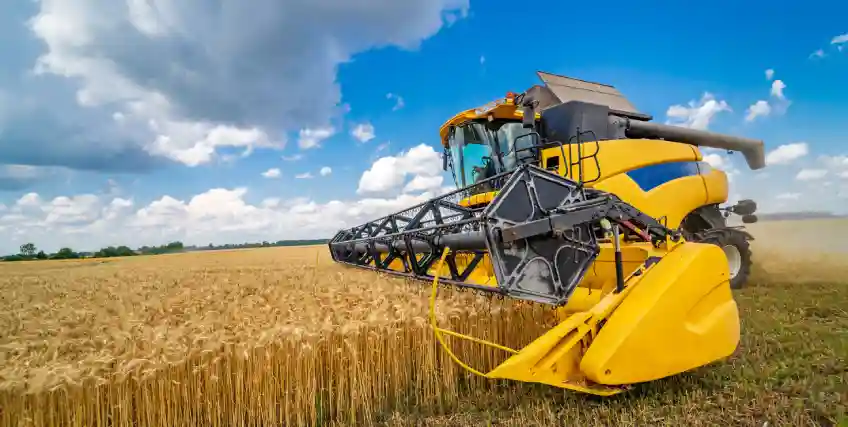Machinery Finance for Agricultural Startups: What to Know
Sep 16, 2025 | Last Updated on: Sep 17, 2025

Agricultural startups have a lot of high upfront costs that can be challenging to pay out of pocket. Operating a business requires a delicate balance of managing cash flow now and investing in your growth. But it can be tough to grow when you have limited resources to go further. Machinery finance options provide capital to help you get the tractors, harvesters, and other tools in a pragmatic way. Find out more about machinery finance, the various options available, and how to apply.
What is Machinery Finance?
Machinery finance options help startups access funding to purchase new equipment for their agriculture business. These financing solutions cover costs for things like tractors, harvesters, irrigation systems, and other essential tools. It’s a smart option for agricultural startups with fluctuating revenue to buy what they need, without paying the substantial cost upfront.
How Machinery Finance Options Can Help
Machinery finance options can help agricultural businesses in the following ways:
- Lower upfront costs: Maintain your working capital and avoid draining your financial resources. Instead, you can spread out costs over time. You can choose a financing option and repayment term that align with your business needs.
- Upgrade equipment: No need to be behind the curve with technology and equipment. You can upgrade your equipment with the latest option right now and you don’t have to save for months or years to get it.
- Grow and scale: The right equipment could transform your agricultural startup and enhance efficiency and productivity. By doing that, you can grow and scale at a reasonable pace.
- Potential tax benefits: Thanks to IRS Section 179, you may be able to deduct some farm machinery. Of course, talk to your accountant or another tax professional about specifics.
Types of Machinery Finance Options
Agricultural startups looking for machinery finance options can look into the following:
Term Loans
If you need a machinery finance option that provides a large sum to cover expenses, a term loan may be the right fit. Term loans provide you with a lump sum that you repay on a schedule. In many cases, you’ll have a fixed interest rate and term, which means predictable payments for you and easier budgeting.
Term loans can provide the financing you need to buy the right machinery, which is often costly. A tractor alone can cost $20,000+ to $60,000+ or more, depending on the type and size. When you get a term loan, you can purchase the equipment now and repay it over time. Typically, you can find term loans through your financial institution, like a bank or credit union. But they are also available from online lenders, which may have faster processing, approval, and funding timelines.
Equipment Loans
Whether you’re just launching your agricultural startup or you’re a veteran in the industry, you’re going to need to get the appropriate equipment to do your line of work. Buying tractors, trailers, wagons, and everything you need to get set up adds up fast.
You could easily drain your financial resources by buying equipment. But with an equipment loan, you get the benefit of access and ownership in exchange for monthly payments. It’s a more manageable way to cover expenses and buy the right equipment.
Equipment loans can be a solid option to consider and may be more accessible than other financing options. That’s because the equipment serves as collateral for the lender. So in the event you fail to make the required payments, the lender can seize the equipment.
Be aware that some lenders may want a down payment of 10% to 20% on an equipment loan. Your monthly payments are generally going to be higher than they would be if you were to get an equipment lease. However, you get one hundred percent ownership of all the equipment when you pay off the loan. On the other hand, your equipment may be out of date at that point, so weigh the pros and cons and evaluate your business needs and goals.
Equipment Leases
If you don’t want to purchase a plow or tractor or other equipment outright, you can research equipment leases. Through an equipment lease, you’re basically renting to use the equipment for a period of time. However, some leases work differently, so read the terms and conditions.
You may be able to give the equipment back hassle-free at the end of your lease or be able to buy the equipment. If you go this route, be sure to read your lease agreement. When you get a lease, your monthly payments could be lower relative to a lease, but the downside is that you won’t own the equipment when your lease is up (unless that’s an option later on).
For agricultural startups that want to prioritize flexibility, a lease may be a beneficial alternative to a loan. The major drawback is that you won’t have ownership of the equipment when the lease ends.
SBA Loans
The Small Business Administration (SBA) supports business owners by offering loan options that are backed by the agency. Because of that, it’s less of a risk for the lenders they partner with to offer borrowers a loan. While the SBA has several different loan programs, the 7(a) loan is a good fit for agricultural startups looking for machinery finance options.
The SBA 7(a) loan can be used for purchasing machinery and equipment as well as working capital. The 7(a) program has a steep maximum loan amount of $5 million. To get an SBA loan, you must meet their standard requirements.
SBA loans can be a valuable tool, but it’s key to be aware that this funding option may have a longer timeline than some alternatives.
Vendor Financing
Let’s say you need to purchase several tractors. Instead of going to a bank or credit union, it may be possible to get machinery finance funds straight from the vendor selling the equipment. For example, you can get equipment financing through John Deere. The company offers both equipment loans and leases and also sells used agricultural equipment. Though this option can be very convenient, be sure to compare rates and terms with other lenders as well.
How to Apply for Machinery Finance Options
To apply for machinery finance options:
- Decide on machinery finance option: Based on existing business needs and cash flow, decide which financing option makes the most sense with your business. Understand how the added monthly payment will affect your business finances and have a plan to repay the loan.
- Review eligibility criteria: After choosing the financing option, look at the eligibility criteria from various lenders. Typically, they look at how long you’ve had your business, your annual revenue, the requested loan amount, and your credit score. Your credit history can affect both your approval and the interest rate you get.
- Compare options: Before applying for machinery finance options, compare several lenders first, so you get the best rate of interest and repayment terms. Look for potential fees.
- Complete loan application: After choosing the lender you want to go with, complete an application. You will need to provide the lender with your personal and financial information. Some lenders have minimal documentation requirements, but not all do. You may need to include bank statements, tax returns, profit and loss statements, annual revenue and time in business.
- Get funds: If approved , the lender will process your application and send your loan amount. The disbursement may go to your business bank account or the seller of the equipment.
- Use funds: When you have the funds, you can then make your machinery purchase and get exactly what you need.
- Repayment: Based on the terms and agreement of your loan, repay your loan on schedule. See if the lender will report your payments to business credit bureaus, which can help establish and build a business credit history.
Final Thoughts
If you have an agricultural startup, you know the challenges that come along with the territory. Even the best business plan and hard work can’t prevent certain factors like weather, which are outside of your control, from affecting your business. Having access to machinery finance options can be a lifeline, so you don’t have to use all of your working capital. Keeping your current resources intact and investing in new equipment can help you keep going and focus on what you do best.
FAQs about Machinery Finance
Find more information about machinery finance options by checking out our FAQs.
What Type of Business Machinery Loans Are Available?
Machinery finance options include term loans, SBA loans, equipment finance options, and vendor financing. When comparing options entrepreneurs should look at the loan interest rate, repayment term, and any down payment requirements or processing fees.
How Do You Get Quick Business Capital?
If you need quick business finance options, you can look into business credit cards and a business loan from an online lender. Many online lenders have a simple application process and fast loan processing.
How Do You Get Machinery Finance for Agricultural Startups?
Agricultural startups looking for machinery finance options can look for various financial solutions at banks, credit unions, and online lenders. From there, you can research loans or financing that fit your business needs and cash flow.
What Do You Need for a Machinery Finance Application?
Borrowers applying for machinery finance options will need their income tax returns, bank statements, and other documents showing the revenue for their small business. Lenders also check credit scores and the higher it is, the more likely you are to qualify for competitive interest rates and to get loan approval.
What Are Loan Eligibility Requirements for Machinery Financing?
If you’re looking into machinery finance options, the eligibility requirements vary based on the lender you use and the type of financing you apply for. When comparing lenders, look at repayment terms or loan tenure, interest rates, and origination fees.
Frequent searches leading to this page
Term Loans are made by Itria Ventures LLC or Cross River Bank, Member FDIC. This is not a deposit product. California residents: Itria Ventures LLC is licensed by the Department of Financial Protection and Innovation. Loans are made or arranged pursuant to California Financing Law License # 60DBO-35839




